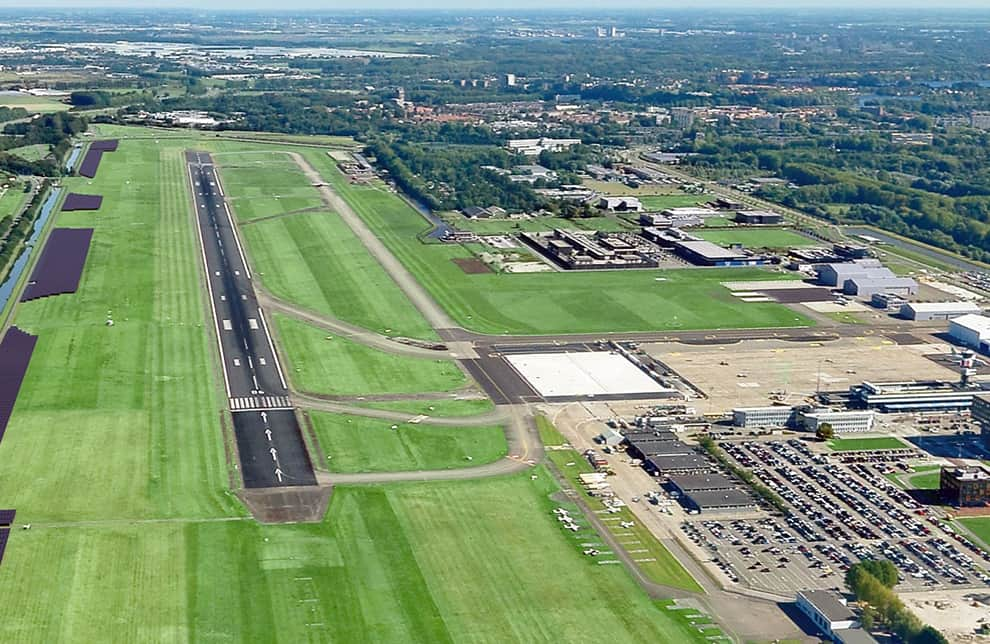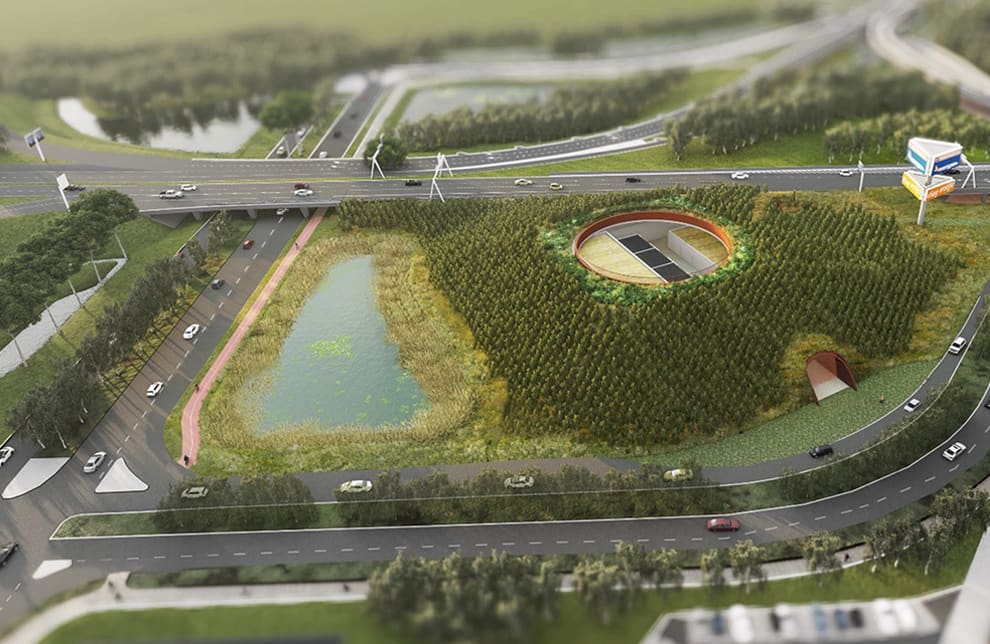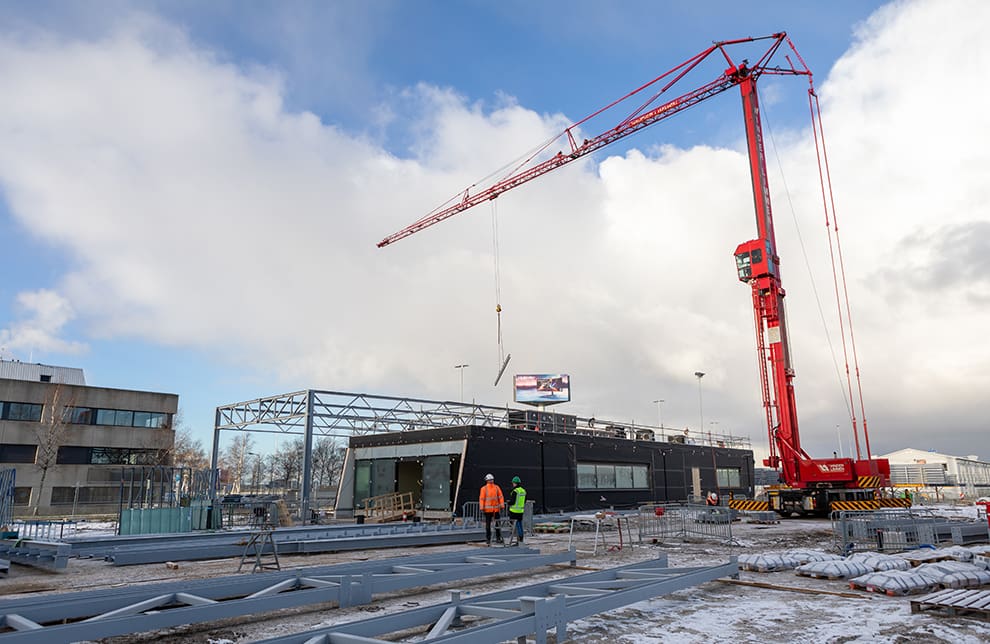RTHA to become energy positive
The first panel of the solar park at Rotterdam The Hague Airport was installed on 5th July and the project will be complete in the autumn. The park covers an area of 7.7 hectares and it lies parallel to the runway.

Three times the energy required by RTHA
As of this autumn, 37,000 solar panels will be generating 14 GWh of green energy each year. That’s 3 times more than RTHA actually requires. This means that the airport will soon be energy positive, which is one of Royal Schiphol Group’s sustainability ambitions.
RTHA to provide Zenid with power
The surplus energy will go to innovation projects, sustainability projects, companies and private individuals in the local area. One of the projects that will receive energy from the solar park is Zenid, the pilot plant for sustainable synthetic aviation fuel. This plant will be located at or near RTHA.
Smart Energy System for optimal solar power use
In order to optimally make use of solar power at the airport, a special energy system for storing and regulating flows of energy will be installed. This system is known as a Smart Energy System (SES) for solar energy and heat.
Awarded with sustainability certification
RTHA’s efforts have received the highest level (Level 4+) of the Airport Carbon Accreditation (ACA). Just four other airports worldwide have received this sustainability certification. RTHA is the first airport in the Netherlands and the second in Europe to achieve the highest level.
Partners
The creation of the solar park is a result of cooperation between Rotterdam The Hague Airport, Unisun Energy (Rotterdam), energy supplier Eneco and the foundation Rotterdam The Hague Innovation Airport (RHIA). RHIA was set up by Rotterdam The Hague Airport, together with the Municipality of Rotterdam, to advance innovation in aviation. Rotterdam The Hague Airport is part of Royal Schiphol Group.
Read the previous blogs
-
Special high-voltage substation
Published on:New high-voltage substation contributes to one of Schiphol’s most significant sustainability goals: zero emissions in 2030.

-
More electric equipment
Published on:Most diesel generators have now been replaced by electric ones. Schiphol provides almost all planes parked at the gate with electrical power.

-
Start construction circular checkpoint
Published on:For the new checkpoint we are using material left over after the demolition of three office buildings and three cargo buildings at Schiphol.
